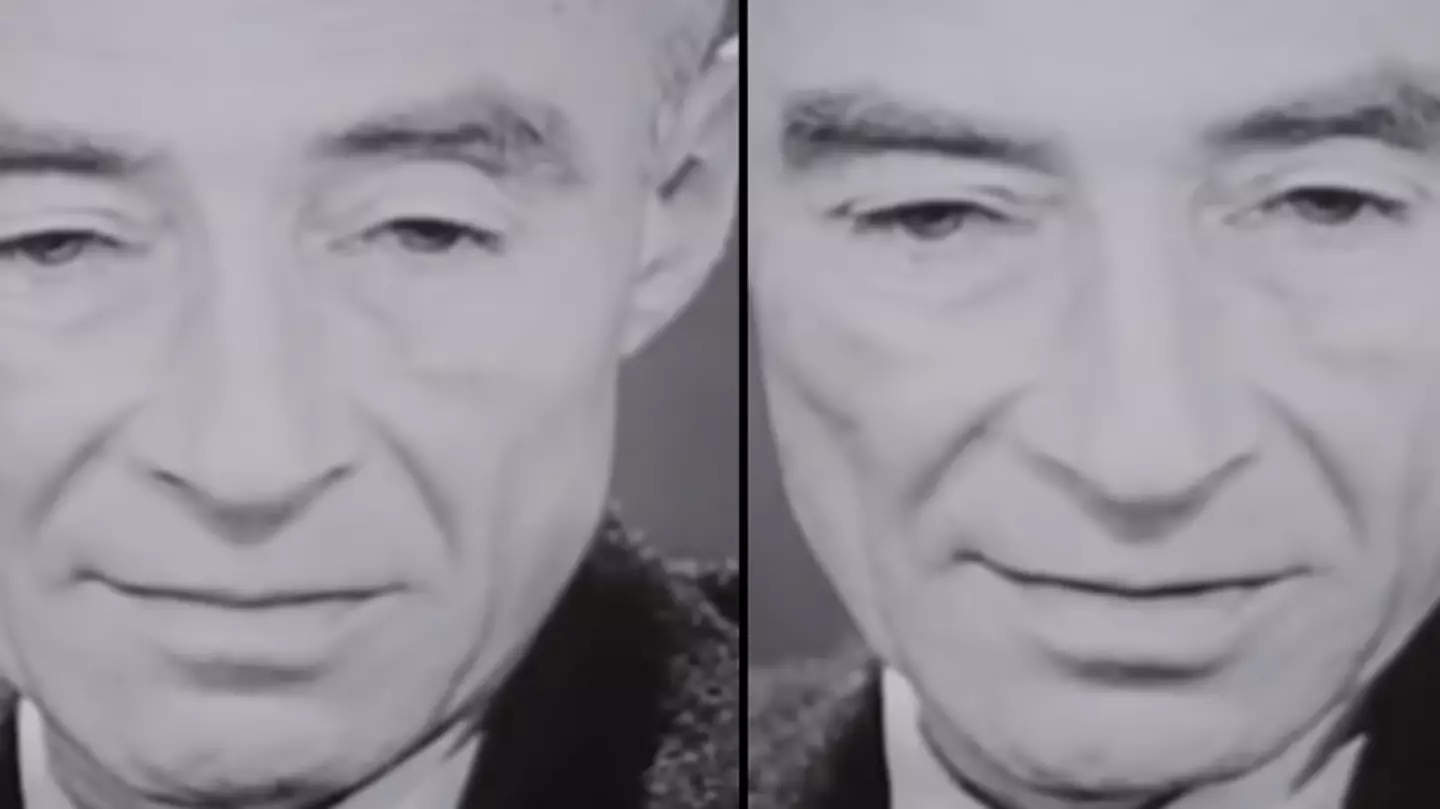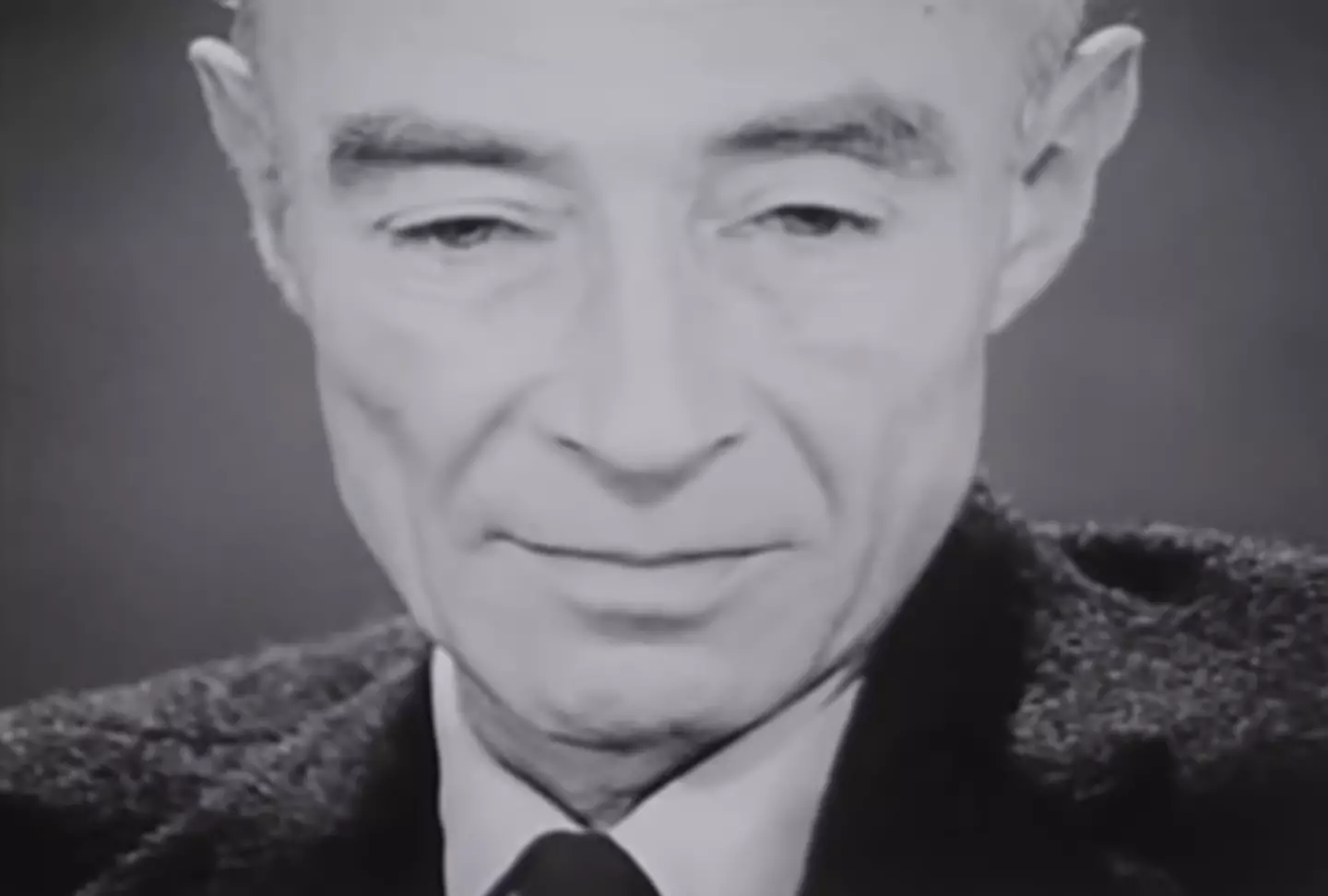
Christopher Nolan's latest film Oppenheimer takes on the life of the physicist who helped create the first nuclear weapons.
The movie, in which J. Robert Oppenheimer is played by Cillian Murphy, looks back on the physicist's moral dilemma for having developed the atomic bomb.
First detonated at the Trinity test in July 1945, the bomb would later be used by the US government with the intent to expedite the end of War World II, with the bombings of Hiroshima and Nagasaki in Japan resulting in the deaths of hundreds of thousands of people including civilians.
Advert
Present at the Trinity test, Oppenheimer, who was a cultivated scholar and linguist who had learned Sanskrit, would later say that he had one quote flashing through his mind during that history-defining moment.
The passage is from the Hindu scripture the Bhagavad-Gita, written in Sanskrit - an ancient and classical language of India.

In a public address after the Trinity test, the physicist said: "We knew the world would not be the same.
Advert
"A few people laughed, a few people cried, most people were silent.
"I remember the line from the Hindu scripture the Bhagavad-Gita [...] 'Now I am become death, the destroyer of worlds'.
"I suppose we all thought that, one way or another."
While the expression 'destroyer of worlds' can immediately linked to the role Oppenheimer played in the August 1945 bombings of Japan, the context for the quote is a tad more complex.
Advert
Oppenheimer sums up the passage where the quote is from in his speech. A dialogue in the text sees warrior prince Arjuna turning to an incarnation of Vishnu known as Lord Krishna when he's called to face an army containing his friends and relatives.
Krishna teaches him about a higher philosophy that will help him carry out his duties as a warrior regardless of his personal concerns.
The prince then asks the deity to reveal his universal form, and he manifests as a sublime, terrifying being of many mouths and eyes - the destroyer of worlds Oppenheimer refers to in his quote.
In 2017, Rev Dr Stephen Thompson, who completed a PhD in Sanskrit grammar and a DPhil at Oxford University on other aspects of the language and Hindu faith, explained the passage in an interview with Wired.
Advert
He said that Oppenheimer's Sanskrit teacher chose to translate 'world-destroying time' as 'death', a common interpretation linked to Hinduism's non-linear concept of time.

"Arjuna is a soldier, he has a duty to fight. Krishna not Arjuna will determine who lives and who dies and Arjuna should neither mourn nor rejoice over what fate has in store, but should be sublimely unattached to such results," Dr Thompson said.
"And ultimately the most important thing is he should be devoted to Krishna. His faith will save Arjuna's soul."
Advert
Dr Thompson added: "In the larger scheme of things, presumably The Bomb represented the path of the battle against the forces of evil, which were epitomised by the forces of fascism.”
For Oppenheimer, however, it was seemingly never this black and white.
Two years later, he was still mulling over the moral consequences of the bomb, which, as he told fellow physicists, had 'dramatised so mercilessly the inhumanity and evil of modern war', per The New York Times.
"In some sort of crude sense which no vulgarity, no humour, no overstatements can quite extinguish, the physicists have known sin; and this is a knowledge which they cannot lose," he added.
In 1961, six years before his death, Oppenheimer elaborated on what 'sin' meant, detaching the work of scientists from the life-altering decisions made by governments.
"Scientists are not delinquents," he said.
"Our work has changed the conditions in which men live, but the use made of these changes is the problem of governments, not of scientists."
Oppenheimer is released in cinemas on July 21.
Featured Image Credit: @PlenilunePictures/YouTubeTopics: Oppenheimer, History, World War 2, TV and Film
